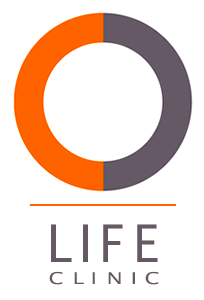End Period Poverty Now

- Did you know that 1 in 9 girls in the UK have missed school because they can’t afford to buy period hygiene products?
- Did you know that tax on period products in Greece is one of the highest in Europe at over 20%.
- Did you know that in 2022, 30% of women in France aged between 18-24 were regularly unable to buy sanitary products due to financial difficulties?
Examples are endless. Period poverty is a real global issue.
Please read this, bump this post and pass on the message
What is period poverty?
Period poverty refers to the lack of access to menstrual products, education, and facilities, as well as the stigma and shame surrounding menstruation. It affects individuals who cannot afford or access menstrual hygiene products, or who have limited access to sanitation facilities, clean water, or safe and private places to change and dispose of menstrual materials. Period poverty can have significant physical, emotional, and social consequences, including infection, shame, missed school or work, and limited participation in society.
It is a global issue affecting millions of people, particularly those in low-income countries and marginalized communities.
But how about Period Poverty in Europe?
Here are some examples of period poverty a bit closer to home…..
- In the UK, 1 in 10 girls cannot afford to buy menstrual products (Plan International Survey)
- In Germany, a 2019 survey revealed that one in three women have experienced period poverty, with young women and those from low-income households being the most affected.
- In Italy, a study found that 50% of girls aged 12-19 have experienced menstrual poverty, with the main reason being the high cost of menstrual products.
- In France, menstrual products were taxed at the full rate of 20% until January 2022 when the government reduced the tax to 5.5%, acknowledging the financial burden it places on women and girls.
- In Eastern Europe, there are reports of women and girls using newspapers, rags, or socks as menstrual products due to lack of access or affordability.
- In some parts of Europe, menstrual products are not provided in schools or public toilets, making it difficult for women and girls to manage their periods while away from home.
- The COVID-19 pandemic has worsened period poverty in many European countries, with increased financial strain on households and disruptions to supply chains causing shortages of menstrual products.

Scotland became the first country in the world to provide free menstrual products in schools, colleges, and universities in 2020. The Scottish government also made menstrual products available in community settings, including libraries and leisure centers.
A new EU Law…. but was it enough?
A new EU law passed in April 2022, allows EU member states to exempt value-added-tax on sanitary products. As yet none of the EU27 nations have reached a decision to eliminate this tax. It is complicated though. Suppliers have, in turn, placed higher pre-tax prices on their products, which means that for us, the end consumers, the price point hasn’t changed much. So simply banning tax on sanitary products isn’t enough.
Consumption taxes are less visible to taxpayers than income taxes and are less intuitive. This makes it a particularly fertile ground for manipulation by special interest groups.
For industry groups, keen on obtaining tax breaks, a reduction in VAT can bring significant advantages, namely it may mean an increase in profit margins, an increase in the competitiveness for their products, or both.
Rita de la Feria (2021), Centre for Business Taxation, Oxford University (Read the article)

Source: Statistica.com (Read article here)
Other developments….
- In England, the government announced in 2020 that it would provide free menstrual products in schools and colleges, following a successful pilot program in 2019. The government also abolished the so-called “tampon tax” on menstrual products, which had previously been taxed at the same rate as luxury items.
- In the United States, several states, including California, Illinois, and New York, have passed legislation requiring schools to provide free menstrual products to students. In addition, the Biden administration announced in 2021 that Medicaid, the government health insurance program for low-income Americans, would begin covering the cost of menstrual products.
- The European Parliament voted in 2020 to declare a “menstrual health and hygiene day,” aimed at raising awareness of the issue of period poverty and promoting access to menstrual products.
- The World Health Organization and UNICEF published a joint statement in 2021 calling for increased investment in menstrual health and hygiene, including access to menstrual products and education. The statement highlights the impact of menstrual poverty on girls’ education and overall health and well-being.
- 10 March 2023 – France announces free sanitary products for under 25s
Period poverty is a serious issue that affects many individuals globally. To reduce this poverty we need to increase access to affordable menstrual products. This means that governments and non-profit organizations need to work to increase access to menstrual products, such as pads, tampons, and menstrual cups. Perhaps this could be achieved through a combination of subsidies, free distribution programs and by making menstrual products tax-free.
However, education and awareness is really important, particularly in helping to break the stigma surrounding menstruation, and increase knowledge about menstrual health and hygiene. If you have found this article interesting, please bump it and spread awareness of this issue in conversation with your friends. Every little helps.

Feminine hygiene products are subject to tax in a number of countries




